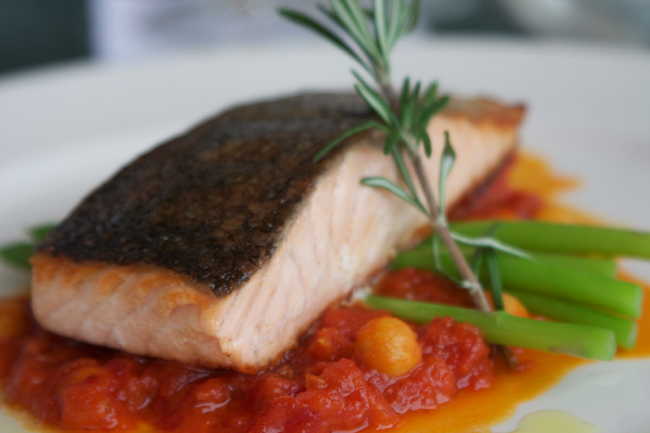Starting on March 23, 2015 China has halted imports of whole salmon from northern Norway. The banned imports concern whole salmon with heads or viscera from Norway’s northern counties of Sor-Trondelag, Troms and Nordland.
China’s General Administration of Quality Supervision, Inspection and Quarantine (AQSIQ) wrote a letter to the Norwegian authorities about its its worries that viruses carried by the products could threaten the Asian country’s fish farming industry
China has found viruses that can cause infectious salmon anaemia (ISA) in ten batches of salmon imports from the three Norwegian counties since last summer, the latest case as recent as February 27, according to the letter, dated March 17.

An analysis conducted by Chinese experts last year showed that Norwegian salmon have a high risk of spreading ISA viruses, which pose a potential threat to China’s fish stocks that are susceptible to diseases.
For whole salmon from other Norwegian regions, exports will continue but starting April 18, they will only be accepted by China if they are accompanied by certificates with new content, including guarantees that the fish is free of ISA viruses or salmonid alphaviruses (SAVs).
Moreover, China will increase its testing for the presence of ISA viruses in all salmon imports from Norway and new measures will be taken if there are problems.
The Norwegian Food Safety Authority (FSA) said that it had on several occasions sent documentation to the Chinese authorities showing that Norwegian salmon imports meet international requirements and pose no threat to China’s fish.
“We believe that there is no danger to Chinese salmon of infection with ISA virus because fish products from Norway go directly to the consumers,” the FSA said in a statement.
Viruses that cause disease in fish are not pathogenic to humans. The most important reason for this is that fish are cold blooded animals, which have a much lower body temperature than humans. Virus and bacteria that cause disease in fish can therefore not exist in the temperature in human bodies. Thus fish viruses are not harmful for humans, and it is safe to eat Norwegian farmed Atlantic salmon, writes FSA.
Both farmed fish and wild fish are indigenous to an environment where millions of bacteria and viruses exist in ever drop of water. These are a natural part of the environment and important for nature’s balance.
Infectious Salmon Anaemia (ISA) is a serious infectious disease in Atlantic salmon. It therefore has implemented a contingency plan, in accordance to EU law.
This contingency plan is put into force immediately when suspicion of disease occurs. ISA is a wide spread disease and major outbreaks have been recorded in most countries with significant salmon aquaculture industry. Fish viruses are not harmful to humans and it is safe to consume Norwegian farmed Atlantic salmon.
The Norwegian Food Safety Authority is responsible for a correct diagnosis of ISA and the programme to combating the disease.
In case of ISA suspicion, the fish farm will immediately be held in quarantine by the NFSA. Information about the suspicion will be published on the NFSAs official webpage and NSFA will start epidemiological investigations.
In case of a confirmed diagnosis of ISA, a protection zone and surveillance zone is established and several measures are implemented to control and combat the disease.
An important part of the programme is to immediately slaughter and\or destroy diseased fish from the quarantined establishments.
All farms within the protection zone have to slaughter out the fish before the restrictions are lifted. In addition, a fallowing period is implemented for minimum of 2 month for the whole zone and a minimum of 3 months in ISA infected sea farms.
The NFSA is responsible for the control and supervision of the actions taken in case of a disease outbreak and will supervise cleaning, disinfection and fallowing of the facility, risk-based surveillance and regular inspections until the restrictions are lifted. This is done in accordance with EU regulations.
Sources: Wantchinatimes, Norwegian Food Safety Authority (FSA.)
